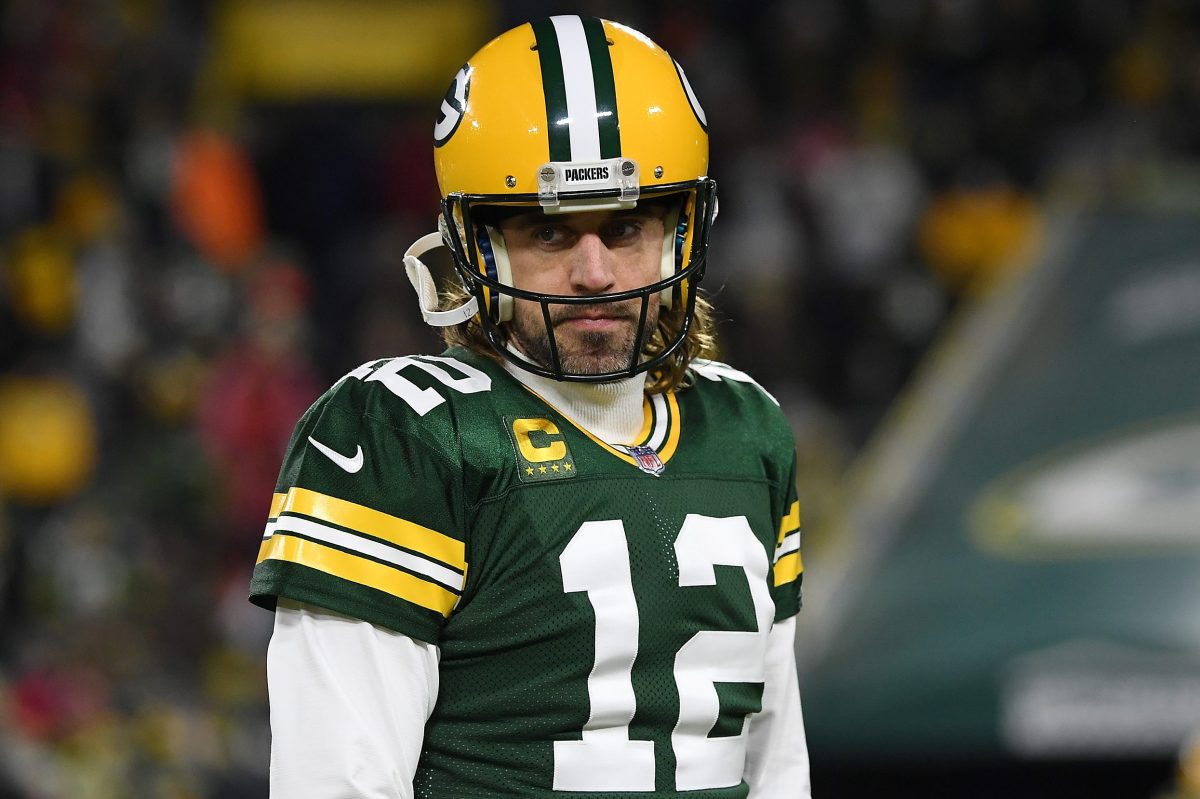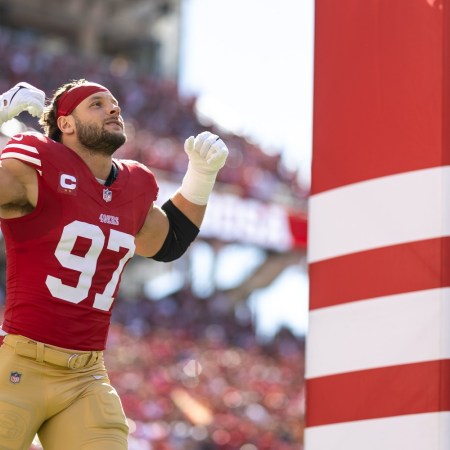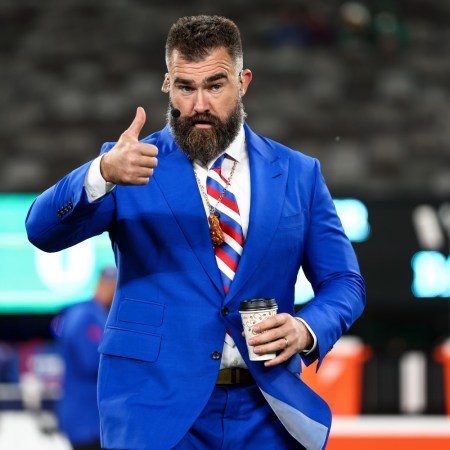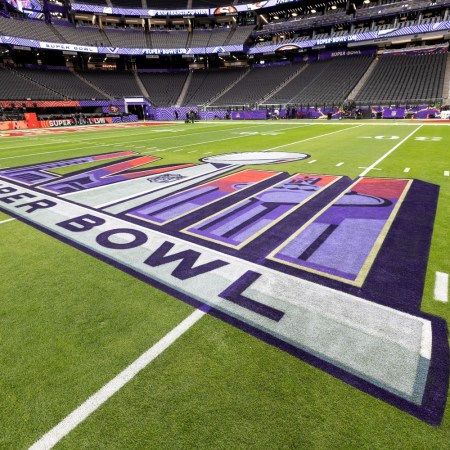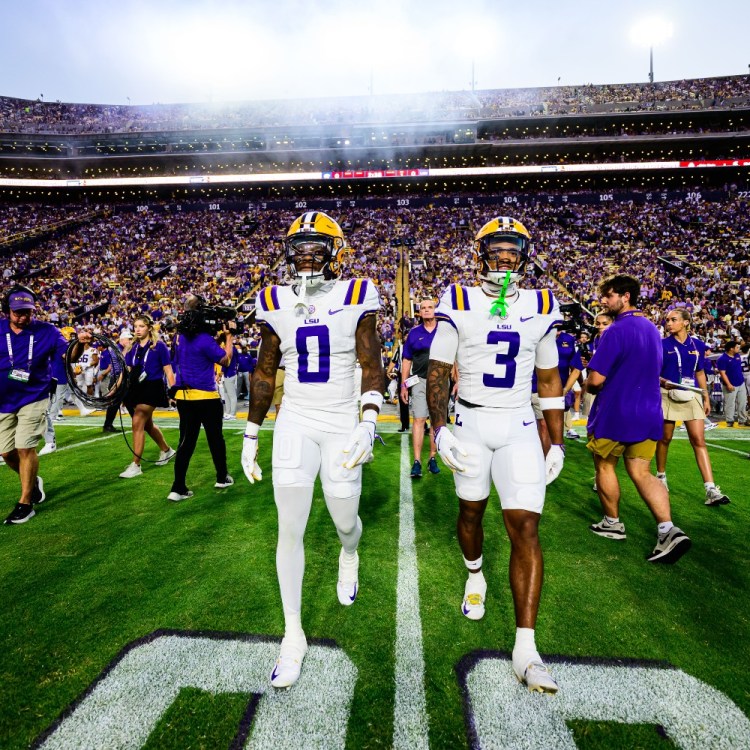After the NFL’s first Super Wild Card Weekend failed to impress due to a number of lopsided scores, the league was hoping that the action would tighten up in the four games in the Divisional Round of the playoffs.
Boy, did it ever.
Following up a wild card-round that saw the weekend’s six games decided by an average of 17.2 points, the average margin of victory for the four games in the divisional round of the playoffs was just 3.8 points. All four of the games ended in walk-off fashion (three field goals and an overtime touchdown) and both No. 1 seeds, the Titans and Packers, lost in the second round for the first time since 2010, which was also the last time neither Tom Brady nor Aaron Rodgers played in the Championship Round of the playoffs.
That will happen again this season, with Brady and Rodgers both losing this weekend, albeit for very different reasons. We’ll cover them — as well as why the Titans and Bills went down — as we analyze why each of the weekend’s four losers lost their matchup.
The Titans Lost Because Ryan Tannehill Isn’t Good Enough
Following a lengthy layoff due to injury, star Tennessee running back Derrick Henry made a long-awaited return with a steel plate in his broken foot and attempted to give the sputtering Titans offense a much-needed jumpstart. It was a valiant effort and Henry did manage to score a touchdown in the second quarter, but he wasn’t close to his usual self, with his 20 carries producing just 62 yards and five first downs.
Unable to ride Henry to a win against a mediocre Bengals defense, the Titans turned to $25-million quarterback Ryan Tannehill, and the 33-year-old failed to live up to his contract (which carries a $57.4 million dead cap hit if he is released).
Needing to play almost flawlessly in the AFC divisional game for the Titans to advance to the AFC Championship Game, Tannehill was intercepted the first time he threw the football and tossed two more picks as Tennessee lost to the Cincinnati Bengals 19-16 on Saturday at Nissan Stadium.
For Tannehill, who completed 15-of-24 passes for 220 yards and one touchdown to go along with the three picks, Saturday’s loss to the Bengals was just more of the same in a season that saw him throw 17 interceptions in 18 contests after throwing only 13 across his first 28 games in Tennessee. Largely a game manager, Tannehill had some good moments on Saturday and during the season, but it appears he has hit his ceiling as a quarterback. Paired with Henry and given weapons like receiver A.J. Brown and Julio Jones to go along with a solid defense, Tannehill can get by. But as soon as he’s missing just one of those pieces, his poor decision-making and lack of big-play ability become apparent, as they did on Saturday.
“I don’t think Ryan or myself or anybody did enough to win the game,” Titans coach Mike Vrabel said following the loss. “Obviously, the guy pulling the trigger is going to get blamed. I mean, that’s just what happens. But we all have to do a better job of taking care of the football.”
Taking care of the football is one of the skills that has allowed Tannehill to flourish as a solid, complementary quarterback. If he can’t even do that anymore, the Titans would probably be wise to move on. But due to the 57.4 million reasons Tannehill’s dead cap hit gives them not to, they probably won’t.
The Packers Lost Because of Their Fatal Flaw
Following a double-digit win over the Chicago Bears on Sunday Night Football in December, the first question Green Bay head coach Matt LaFleur had to field at the postgame podium was about a dismal performance on special teams that saw the Packers muff punts, give up an onside kick recovery and routinely fail to cover returns.
At the time, LaFleur expressed confidence in the unit and first-year special teams coordinator Maurice Drayton. Now, after watching the Packers have a field goal rejected and a punt blocked and returned for a touchdown in route to a 13-10 defeat, LaFleur might be rethinking that status.
A fatal flaw all season, Green Bay’s play on special teams led to what amounted to a 10-point swing in a game that was decided by three points. And if you want to include lining up only 10 players to defend the game-winning field goal attempt by Robbie Gould that gave the 49ers their 13-10 win, a case could be made for it really being a 13-point swing.
Add in allowing kick returns of 45 and 32 yards, and Saturday night’s performance was truly befitting of the NFL’s 32nd-ranked special-teams unit in DVOA (defense-adjusted value over average) during the regular season. Mason Crosby, who missed the most field goals (nine) of any kicker who attempted at least one per game during the regular season, didn’t miss a kick at the end of Saturday’s game, but one gets the sense he would have if given the opportunity.
Rodgers and his inability to throw the ball to anyone other than receiver Davante Adams and running back Aaron Jones certainly didn’t help Green Bay’s chances, but if the blocked punt and the seven points it generated for the 49ers were wiped off the board, the Packers still would have won the game despite their inept offense. Green Bay’s offense was bad, but it was the single worst special teams performance from an NFL team all season that truly doomed the Packers in the playoffs.
“That can’t happen. It’s unacceptable. And, again, that’s on me,” LaFleur said after the loss. “I don’t know exactly what happened, I’ll have to go back and take a look at the tape. We had two blocks in this game and obviously, it played a big part in us coming up short.”
That’s an understatement.
The Buccaneers Lost Because Cooper Kupp Wouldn’t Quit
Trailing by double digits for much of the afternoon, the Tampa Bay Buccaneers were somehow able to tie the Los Angeles Rams in the final minute of Sunday’s game with a touchdown from running back Leonard Fournette.
The Rams got the ball back and Los Angeles quarterback Matthew Stafford was left with just 42 seconds to move his team into position for a game-winning field goal. Things started off very rocky for Stafford as he lost seven of those seconds and forced the Rams to burn their final timeout after taking a sack on first down.
Then, as they did pretty consistently on Sunday, the Buccaneers let unanimous All-Pro wide receiver Cooper Kupp get open and catch the ball.
Following the first-down sack, Stafford hit Kupp for 20 yards and he was able to step out of bounds to stop the clock. Stafford then went back to Kupp on the next play for a 44-yard bomb that set the stage for Matt Gay‘s game-winning kick.
Kupp, who won’t win the MVP but will still be playing football while leading award candidates Rodgers and Brady watch from home, accumulated more than one-third of his 183 total yards on the game-winning drive, even though it was obvious he was the only target Stafford felt comfortable throwing the ball to with the game on the line.
How the Bucs were unable to realize that and opted to use single coverage from safety Antoine Winfield on Stafford’s 44-yard heave is puzzling. Here’s how Tampa head coach Bruce Arians explained it: “We just got to cover better in that situation when we’re going after the quarterback,” he said. “They only need like possibly 12 yards for that field goal. So I’m not questioning that call whatsoever. But when we do that, we’ve got to get to the quarterback.”
What Tampa Bay really needed to do was make sure Kupp couldn’t get open. They didn’t, and it cost them the game.
The Bills Lost Because They Bungled Managing the Clock
In the wake of the Buffalo Bills’ 42-36 loss to the Kansas City Chiefs, the bulk of the coverage of the game centered on quarterbacks Patrick Mahomes and Josh Allen as well as the latter not having a chance to tie the game in overtime thanks to NFL rules.
What’s getting lost in that discussion is that the game never should have gone to overtime, because the Bills should have had it won when Allen hit Gabriel Davis for a score on a 19-yard reception with 13 seconds left on the clock.
All Buffalo had to do was make it 13 seconds without allowing Kansas City to kick a game-tying field goal — and they somehow couldn’t do it. The blame for that obviously rests with the Buffalo defense, but a questionable decision by head coach Sean McDermott before the Bills D even had a chance to get torched in the game’s final moments certainly didn’t help.
With Kanas City desperate to utilize every second of the clock in order to get down the field and kick a field goal, McDermott inexplicably had Tyler Bass kick off deep and into the end zone instead of having him boot the ball into the field of play and force a Kansas City kick returner to make a play on it. In addition to potentially getting a member of the Chiefs to mishandle the ball, kicking the ball short of the end zone would have forced Kansas City to use at least a few precious seconds to recover and return the ball.
Instead, Bass kicked into the end zone so no time ran off the clock, and the Chiefs got to start their drive at their 25-yard line with three timeouts. Just needing to get into field-goal range, Kansas City moved the ball 44 yards in two plays, and kicker Harrison Butker was able to tie the game before the Chiefs won it in overtime. Had the Bills handed over the ball to Chiefs with fewer than 10 seconds on the clock, the Chiefs likely would not have been able to run two plays prior to Butker’s attempt.
“We talk about a lot of things,” McDermott said when asked whether the Bills considered a squib kick. “I’m just going to leave it at the execution, and that starts with me.”
Start with McDermott and blame him, not the overtime rules, for how an all-time classic ended with the Bills on the short end.
Whether you’re looking to get into shape, or just get out of a funk, The Charge has got you covered. Sign up for our new wellness newsletter today.
